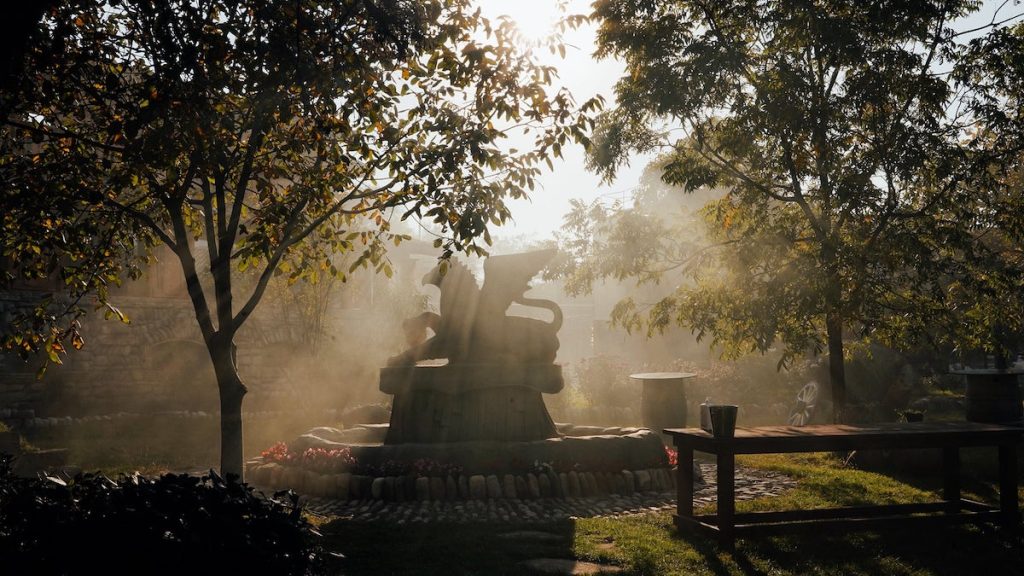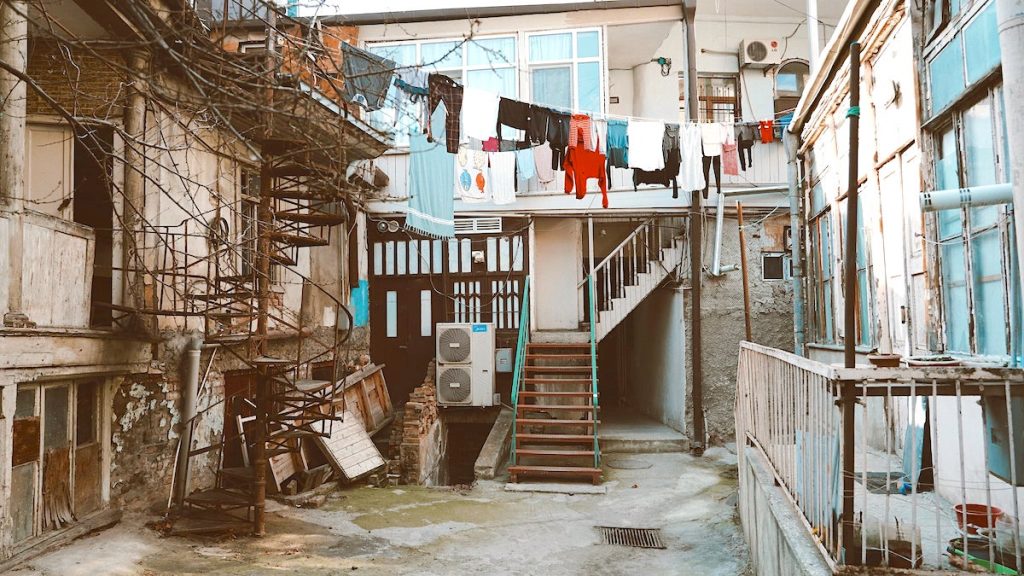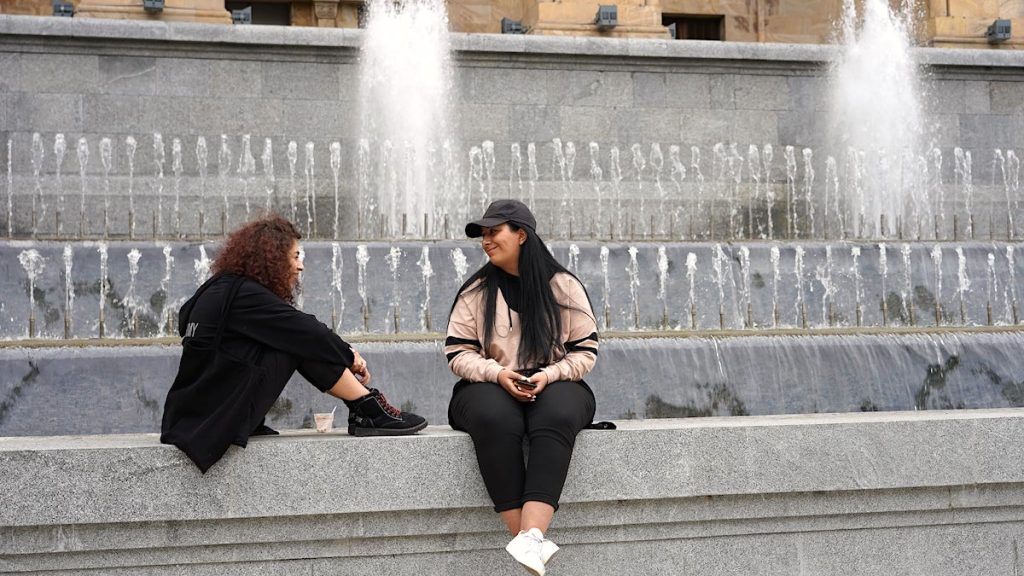"Just don't wear a Putin T-shirt" - political emigrants from Russia and their life in Georgia
Russian political emigrants in Georgia
Lawyer Ivan Pavlov, a journalist for the Russian edition of DOXA Katya Moroko, and human rights activist Nikolai Levshits told the Russian edition of Republic about how Georgia became a popular country for Russian emigrants and how safe it is to be here.
Pavlov, Moroko, and Levshits left Russia after criminal cases were launched against them and their colleagues or there was a threat of criminal prosecution and arrest. International human rights activists evaluate these cases as political persecution.
Listen to the full podcast on the Republic website.
- “Creating false image of the USSR”: why leading Memorial human rights group was closed in Russia
- Opinion from Baku: Moscow is increasing its aggression
- Russian man who made his way to the Covid hospital to look after his grandmother was forced to flee to Georgia
Why Georgia?
Katya Moroko: Georgia is very attractive in terms of its migration legislation – it’s very easy to live here without any bureaucratic problems.
As a foreigner, you can stay on the territory of Georgia for a year, live, work, and there are no special obstacles to this. No need to get permission, no need to register. Everything is very free and in this sense, of course, it is very attractive.
Ivan Pavlov: I left in such conditions when there was not much choice. I didn’t have any visas either, so I chose a visa-free country. I looked where I could go during the pandemic – and it turned out that Georgia was one of those places.

Safety of Russian political emigrants in Georgia
Katya Moroko: I feel safe enough – 95% safe. So far, I don’t quite understand how the government is structured in Georgia, but there is a feeling that the current ruling party, which won the elections again, is trying to maneuver between the European path of development and friendship with Russia.
There are some fears that some kind of political friendship will still be restored, but there are no clear signs of it yet. I can’t call myself an expert in diplomatic relations between Russia and Georgia, but so far I have a feeling that there is nothing to worry about.
Ivan Pavlov: I would not give 95% of feeling safe here – 70%. In any case, more than 50%.
Yes, so far there have been no precedents for any of the Russians who found temporary shelter and were later extradited to Russia. But the current government of Georgia is more inclined towards dialogue with Russia than the previous one. Therefore, there are some elements of discomfort that make us think about security.
Georgia is really between two [forces]: on the one hand, it is European integration, on the other hand, a huge northern neighbor, which has a significant impact on the economy of Georgia and can make the economy develop better.
Therefore, there are risks of becoming such a bargaining chip, but I hope that this will not happen.
Some Russian oppositionists were not allowed through customs to Georgia. I think even Lyubov Sobol [an associate of Russian opposition leader Alexei Navalny, who is in prison – JAMnews]. We have not received any comments either from her or from the Georgian authorities about it.
But it is clear that a large number of opposition-minded Russian public in a small country is a very sensitive issue for this country because at any moment it can become a political problem.
The number [of Russian political emigrants] continues to grow. The authorities that currently exist in Georgia are definitely not interested in this, so they can somehow regulate this – by not to letting more [political emigrants] in, maybe.
But if the country extradites those who are already there, or somehow persecutes them, this will indicate a serious change in course.

How many Russian-speaking political emigrants are in Georgia now?
Katya Moroko: This is a very heterogeneous bunch. There are many emigrants from Belarus, from the countries of Central Asia, who were also forced to flee from their regimes.
A common space of solidarity and mutual assistance is being formed. There is a feeling that we can do something together, whether we are in our own countries or not.
Ivan Pavlov: I think the number goes over a few hundreds for sure, and even to thousands. And this is only if we talk about the last wave of political emigration.
Before my very eyes, businessmen and individual entrepreneurs are coming here, who believe that there are no prospects [to stay in Russia]. Why raise children there, why try to do something [ there] if it only gets worse?
They have very indirect ties with politics. But there are also people who left simply because it is warmer and tastier here.
I have just returned from a trip to Europe, I was in Vilnius and Berlin. I see that there are also more people from Russia. And this last wave is only from one year, you understand?
There is a great cleansing of the information field in Russia. This was not the case before. I see only two reasons for this: either preparation for war, or preparation for the transit of power.
Both require absolutely sterile conditions in terms of information, when no one conducts any investigations and revelations – there should be no noise.
Now, if you look at who was among the victims – who were either imprisoned or forced into exile – these are those who create informative content that does not suit the authorities.
We use the element of publicity in our legal activities – this is our means to make the law work.
You will write petitions, complaints, they will be quietly considered, they will be rejected, but this will never benefit anyone. It will be useful if you highlight this case, if you say: “Look, everyone, what a disgusting thing is happening there”.
Especially if you can still make this disgusting thing funny for the people, so that the people laugh simply because the king is naked, make fun of it. That’s when Leviathan can slightly open his mouth from amazement, from which you can pull out the victim.
Therefore, we, as persons involved in the creation of this information background, also suffered. And Katya, a journalist, is a vivid example of the fact that it is precisely those who create the information space in Russia that are being purged. And here is to you [in the Republic] too. You still have everything ahead of you.

How has the flow of Russian emigrants to Georgia changed?
Nikolai Levshits: It came in waves, like political processes in Russia. As soon as there were arrests, detentions, some kind of searches, people left.
Previously, the number of people was smaller, and they did not move here for good. But for a couple of years now, people have been coming consciously to Tbilisi or Batumi, buying real estate, applying for a residence permit.
Starting from the spring of 2021, after the arrest of Alexei Navalny and arrest at rallies, political activists, volunteers, employees of the headquarters of Navalny, Open Russia, people who were recognized as foreign agents, left.
And there are also many entrepreneurs who no longer want to be visited by the Ministry of Internal Affairs, the FSB and so on, and take away their business and what they have earned. This, unfortunately, often happens in Russia.
- “Russia ousted the West from the South Caucasus” – former co-chair of the OSCE Minsk Group
- “Increase the price of aggression” – Who is arming Ukraine for a possible war with Russia?
Russians and Belarusians can stay in Georgia for 360 days without a visa. Then they can leave to reset this term – to Turkey, Armenia, or another country, return and stay for another 360 days. It is very convenient and easy.
Taxation is bery clear here. Russian is understood almost everywhere. There is no Russophobia in Georgia, so there is nothing to be afraid of. If only you don’t walk around with a Putin T-shirt and shout that “Russia is the champion!”, then everything will be fine.
By the way, according to Georgian law, 20% of the country is occupied by Russia, so this should also always be remembered.
The hardest part is probably the work. In Georgia, the purchasing power is quite low, and it is difficult to get a job, because after all, Georgian is needed almost everywhere.
The Georgian language is very difficult to learn, so you need to think about what to do here. Mostly, probably, remote projects.
There are a lot of expat communities, there are regular meetings, a Russian-speaking bar, places where they play board games, so acclimatization will not be very difficult, I think, both in Tbilisi and in Batumi.
The most difficult thing is just to exhale a little, to understand that a person is no longer in Russia, and to live on.
Georgia does not extradite anyone for political reasons. Here, despite the difficult political situation, the fact that there are no direct flights, that there are no screenings in Russian in the cinema, the situation is still quite calm and friendly.
Katya Moroko: It seems to me that young people who were not already born in the Soviet Union are more out of touch with Sovietness and with the Russian language.
I often come across young people who do not want to speak Russian, although they can, and prefer to speak English, because it is a more neutral language for them.
Or they ask: “Is Russia an occupier or not?” This is a marker question.
Of course, it is not very pleasant when your native language seems to be hostile or even not very neutral for someone. Sometimes it is a painful experience. But I 100% understand why it is happening and I accept it.


















